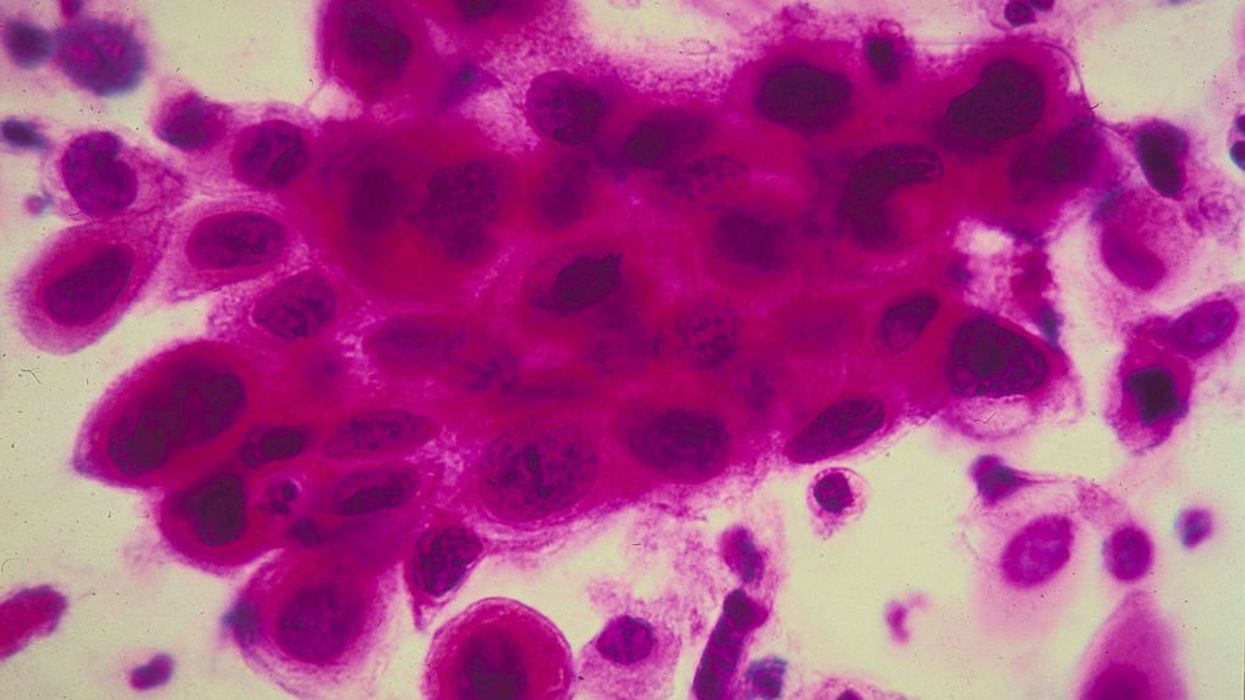
American Cancer Society/Getty Images

In a possible medical breakthrough, researchers say they have discovered a kill switch that triggers the death of cancer cells.
Researchers at the UC Davis Comprehensive Cancer Center believe they have identified a protein on a receptor that can "program" cancer cells to die.
The press release from UC Davis states: "CD95 receptors, also known as Fas, are called death receptors. These protein receptors reside on cell membranes. When activated, they release a signal that causes the cells to self-destruct."
The Daily Mail reported that CAR T-cell therapy "involves collecting and making changes to a cancer patient's T cells, which are responsible for fighting off infection and disease but can struggle to spot cancer cells."
The modified cells are administered to patients' bloodstream through a drip.
"We have found the most critical epitope for cytotoxic Fas signaling, as well as CAR T-cell bystander anti-tumor function,” said Jogender Tushir-Singh – an associate professor in the Department of Medical Microbiology and Immunology and senior author of the study published in the Nature journal Cell Death & Differentiation last month.
At the moment, the treatment has only shown efficacy against leukemia and other blood cancers. The engineered T cells have not delivered results for those suffering from solid tumors such as breast, lung, and bowel cancer.
"Despite being decently successful in liquid tumors, such as leukemia spectrum cancers, long-term remission remains the biggest challenge for CAR T-cell therapies," Tushir-Singh told Fox News.
However, researchers believe the potential breakthrough medical treatment could eventually destroy solid tumors.
"Modulating Fas may also extend the benefits of chimeric antigen receptor (CAR) T-cell therapy to solid tumors like ovarian cancer," the statement reads.
“Previous efforts to target this receptor have been unsuccessful. But now that we’ve identified this epitope, there could be a therapeutic path forward to target Fas in tumors,” Tushir-Singh added.
However, no CD95-boosting drugs have made it into clinical trials as of yet.
Another major hurdle is price – the treatment reportedly costs $500,000 or more.
Tushir-Singh added, "The next breakthrough is just one experiment away."
Like Blaze News? Bypass the censors, sign up for our newsletters, and get stories like this direct to your inbox. Sign up here!